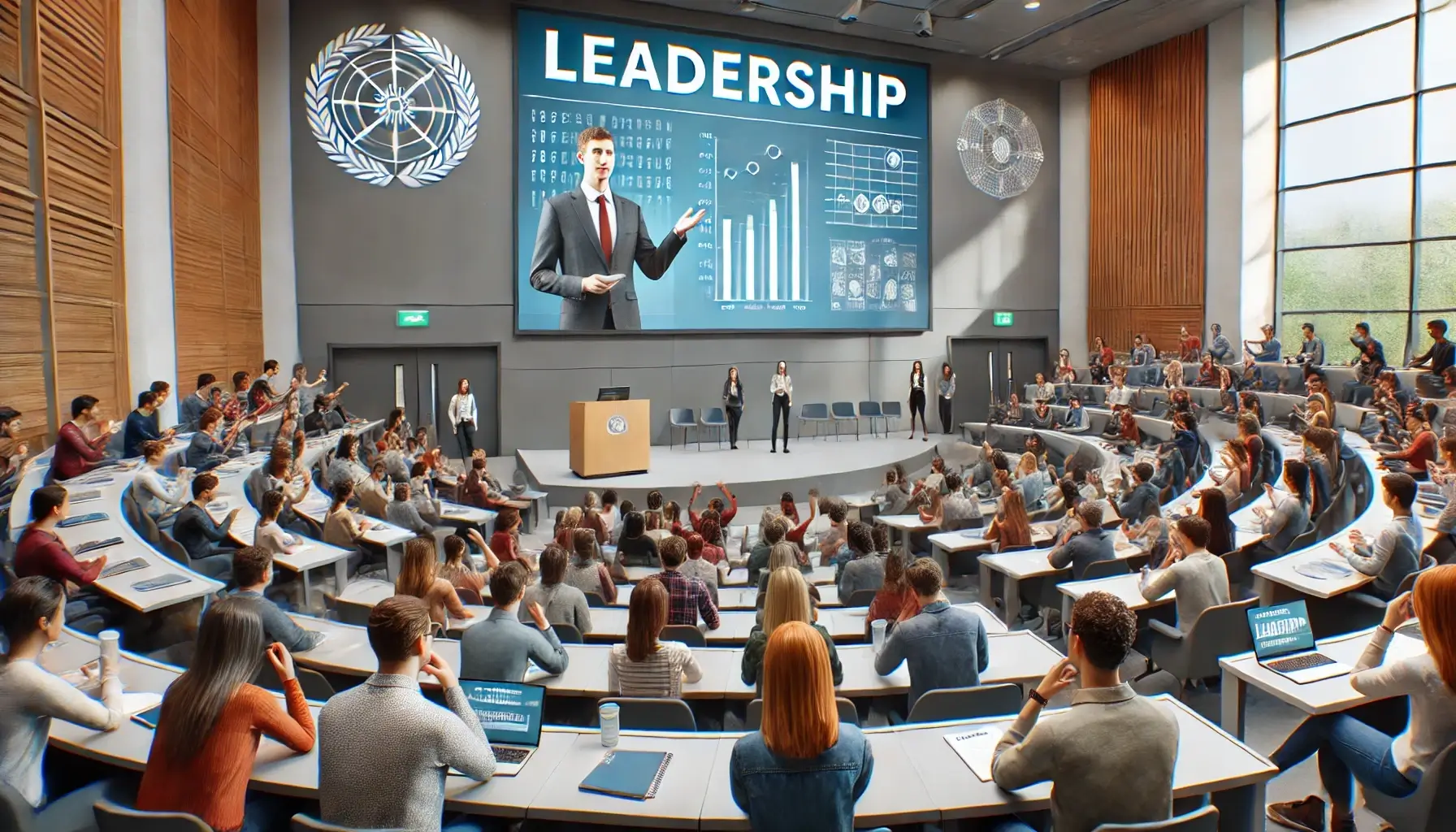Can Leadership Be Taught or Learned? Developing Leadership Skills

Introduction

Leadership plays a vital role in various fields, impacting success and growth across sectors. In business, strong leadership drives innovation and productivity, while in education, it inspires and guides students and teachers. Effective leadership in healthcare ensures quality care and operational efficiency. The importance of leadership extends to government, where it shapes policy and governance, and to non-profits, where it mobilizes resources and drives mission fulfillment.
The debate over whether leadership can be taught or is an innate trait has been ongoing. Some argue that leadership qualities are inherent, a natural part of one's personality. Others believe that leadership skills can be developed through training, experience, and reflection. This article will explore both perspectives, providing insights and evidence to help you form your own opinion. We will delve into essential leadership skills, methods to improve them, competency frameworks, and the effectiveness of leadership development programs. Additionally, we will address the fundamental question: Are leaders born or made?
What Are Essential Leadership Skills?
Core Leadership Skills for Effective Leaders
Effective leaders possess a range of essential skills that allow them to guide and manage teams successfully. Key leadership skills include:
- Strong Communication: Conveying vision, providing clear instructions, and offering constructive feedback.
- Delegation: Assigning the right tasks to the right people, ensuring that team members use their strengths effectively.
- Team Management: Maintaining a cohesive and motivated team, fostering a productive work environment.
Emotional intelligence and self-reflection are also critical competencies for leaders. Emotional intelligence involves understanding and managing one's emotions, as well as recognizing and influencing the emotions of others. This skill is vital for conflict resolution and building strong relationships within a team. Self-reflection allows leaders to assess their actions and decisions, learning from experiences to improve their leadership approach.
How to Improve Leadership Skills
Improving leadership skills requires practical strategies and a commitment to continuous learning. Leaders can enhance their abilities by seeking feedback from peers and mentors, participating in training programs, and practicing their skills in real-world situations. Continuous learning involves staying updated with the latest leadership theories and practices, which can be achieved through reading, attending workshops, and taking online courses.
For practical tips and strategies on professional development, refer to the article on Goalsetting.online. For additional insights into leadership improvement, explre Indeed.com.
Understanding the Competency Framework
Leadership competencies are defined sets of skills and behaviors that organizations use to assess and develop leaders. Competency frameworks provide a structured approach to identifying the necessary skills for effective leadership. These frameworks help organizations create targeted development plans, ensuring that leaders possess the competencies required for their roles.
Organizations often use these frameworks to design training programs and assess leadership potential. By understanding and implementing competency frameworks, leaders can focus on developing specific skills that align with organizational goals.
For a detailed explanation of goal setting and planning, refer to Goalsetting.online. Additionally, for an in-depth look at leadership competencies, check out Forbes.com.
How Can Leadership Be Taught?

Teaching Leadership: Training Programs and Workshops
Leadership can be developed through various training programs and workshops. These programs offer structured learning environments where individuals can acquire and practice leadership skills. Effective leadership training programs include:
- Workshops: Interactive sessions focusing on specific leadership skills.
- Seminars: Expert-led discussions on leadership theories and practices.
- Online Courses: Flexible learning options for busy professionals.
Training programs often use case studies, role-playing, and group discussions to teach leadership skills. These methods help participants understand real-world applications of leadership concepts. The effectiveness of these programs depends on the quality of instruction and the engagement of participants.
For more insights on leadership training and its effectiveness, explore Hbr.org.
The Role of Leadership Coaching in Skill Development
Leadership coaching is crucial for developing personalized leadership skills. Coaches provide one-on-one guidance, helping leaders identify strengths and areas for improvement. Through regular feedback and tailored strategies, coaching can significantly enhance leadership abilities. Key benefits of leadership coaching include:
- Personalized Feedback: Specific insights based on individual performance.
- Goal Setting: Assistance in setting and achieving leadership goals.
- Skill Development: Focused efforts on improving particular leadership skills.
Successful leadership coaching often involves experienced coaches who understand the nuances of leadership development. They use various tools and techniques to help leaders grow and succeed in their roles. For more information on leadership coaching, refer to Goalsetting.online.
Exploring Leadership Theory and Its Application
Understanding leadership theory is essential for applying effective leadership practices. Major leadership theories include:
- Transformational Leadership: Inspiring and motivating followers to achieve higher levels of performance.
- Transactional Leadership: Focusing on the role of supervision, organization, and group performance.
- Situational Leadership: Adapting leadership style to the maturity and competence of followers.
These theories provide a framework for understanding different leadership styles and their impact. By studying these theories, leaders can identify the best approaches for various situations and improve their effectiveness.
Practical application of leadership theories involves using these concepts in real-world scenarios. Leaders who understand and apply these theories can better navigate challenges and drive success within their teams.
Using leadership theory effectively requires ongoing learning and adaptation. Leaders should continuously assess their approaches and make adjustments based on the needs of their teams and organizations.
Is Leadership Development Effective?
Evaluating Leadership Development Programs
Evaluating the effectiveness of leadership development programs is crucial for ensuring they deliver value. Effective programs are measured by specific criteria, including:
- Participant Feedback: Gathering insights from those who have undergone the training.
- Behavioral Changes: Observing changes in leadership behavior and practices.
- Performance Metrics: Assessing improvements in team performance and productivity.
Organizations should establish clear metrics and outcomes to evaluate these programs. This includes tracking progress over time and comparing pre- and post-training performance.For detailed insights into setting and achieving career goals, refer to Goalsetting.online.
Case Studies: Successful Leadership Development Stories
Examining case studies of successful leadership development programs can provide valuable lessons. These stories highlight the impact of well-designed training on individuals and organizations. Key elements of successful programs include:
- Tailored Content: Customizing training to meet specific needs.
- Experienced Trainers: Utilizing trainers with real-world leadership experience.
- Ongoing Support: Providing continuous support and resources after the training.
One example is how certain companies have implemented comprehensive leadership development initiatives, resulting in improved leadership capabilities and organizational success. These case studies demonstrate that effective leadership development can lead to significant improvements in both individual and organizational performance.
For an external perspective, consider reading the article on Voxy.com.
Can Leadership Be Learned?

Key Factors That Prove Leadership Can Be Learned
Evidence and research strongly support the idea that leadership skills can be developed over time. Studies show that with the right training and practice, individuals can improve their leadership abilities. Key factors include:
- Structured Training: Programs designed to teach specific leadership skills.
- Mentorship: Guidance from experienced leaders.
- Real-World Experience: Practical application of learned skills in real scenarios.
The Process of Learning to Lead
Learning to lead effectively involves several steps and stages:
- Self-Assessment: Understanding one's strengths and areas for improvement.
- Setting Goals: Defining clear, achievable leadership objectives.
- Seeking Feedback: Regularly gathering input from peers and mentors.
- Continuous Learning: Engaging in ongoing education and training.
- Practical Application: Applying new skills in everyday situations.
Mentorship and hands-on experience play crucial roles in this process, providing practical insights and real-world practice that enhance learning. For more on professional development goals, see Goalsetting.online.
How to Learn Leadership Skills in Real-Life Situations
Developing leadership skills often requires real-life application and experiential learning. Practical examples include:
- Leading Projects: Taking charge of team projects to practice leadership.
- Volunteering: Gaining leadership experience through volunteer roles.
- Participating in Workshops: Attending leadership workshops and applying the lessons learned.
These experiences provide valuable opportunities to practice and refine leadership skills in various contexts, enhancing one's ability to lead effectively.
Are Leaders Born or Made?

The Debate: Whether Leaders Are Born or Made
The debate over whether leaders are born with innate qualities or made through experience and training is ongoing. Some argue that certain individuals possess natural leadership traits, such as charisma and decisiveness, from birth. Others believe that leadership skills can be developed through education, training, and experience.
Traits of Innate Leadership
Those who support the idea of innate leadership suggest that natural leaders often exhibit specific characteristics:
- Charisma: The ability to inspire and attract followers.
- Decisiveness: Making quick, confident decisions.
- Confidence: Strong self-belief that inspires others.
These traits can give certain individuals a natural advantage in leadership roles. However, possessing these traits alone does not guarantee effective leadership without the development of additional skills and experience.
Evidence Supporting That Leadership Can Be Taught
Research and expert opinions increasingly support the view that leadership can indeed be taught. Studies show that with proper training and practice, individuals can develop the necessary skills to become effective leaders. Key findings include:
- Skill Development: Training programs can significantly improve leadership capabilities.
- Behavioral Changes: Structured learning can lead to observable changes in leadership behavior.
- Continuous Improvement: Leadership development is an ongoing process that benefits from regular practice and feedback.
For a deeper look into team goals and how they relate to leadership development, refer to Goalsetting.online.
The evidence suggests that while some individuals may have a natural predisposition to leadership, effective leadership skills can be developed and refined through dedicated effort and training. This perspective aligns with the growing emphasis on leadership training programs and the role of mentorship in nurturing future leaders.
Conclusion
Leadership is a skill that can be developed through practice, training, and experience. While some may possess an innate ability or predisposition to lead, others can learn to become effective leaders by improving their leadership skills. Effective communication skills, delegation, and soft skills are essential for leaders to connect with others and manage teams effectively.
The question of whether leadership is inherent or developed continues, but evidence supports that with the right guidance and practice, individuals can become successful leaders. Experienced leadership coaches play a crucial role in helping leaders identify their strengths and weaknesses, and provide opportunities to lead in various settings.
In a dynamic business environment, the best leaders are those who can lead teams effectively, manage stress and pressure, and promote leadership within their organizations. Leadership involves understanding the qualities that make a competent leader, such as interpersonal skills and the ability to lead others.
Even those who may not naturally feel inclined towards leadership positions can become better leaders over time. By focusing on their development, everyone interested in being a leader can improve their skills to be a great leader and guide their teams to success. Leadership is not just about innate talent; it involves continuous learning and adaptation to become more effective and lead a team successfully.
FAQs
Can Leadership Skills Be Developed?
Yes, leadership skills can be developed through practice, training, and experience. Engaging in leadership activities, seeking feedback, and continuously learning are effective ways to enhance these skills.
What Are the Core Skills of Effective Leaders?
Effective leaders possess several core skills, including:
- Communication: Clearly conveying ideas and expectations.
- Delegation: Assigning tasks based on team members' strengths.
- Emotional Intelligence: Understanding and managing emotions.
- Decision-Making: Making informed and timely decisions.
Are Great Leaders Born or Made?
The debate continues, but evidence shows that leadership skills can be taught and learned. While some individuals may have natural leadership traits, training and experience play significant roles in developing effective leaders.
How Can I Improve My Leadership Skills?
To improve leadership skills, consider:
- Engaging in Training Programs: Structured courses can provide valuable knowledge and practice.
- Seeking Feedback: Regular input from peers and mentors helps identify areas for improvement.
- Gaining Hands-On Experience: Leading projects and teams in real-world settings.
What Role Does Coaching Play in Leadership Development?
Coaching is crucial for personalized development and helps leaders hone their skills. It provides tailored feedback, guidance, and strategies for improvement.